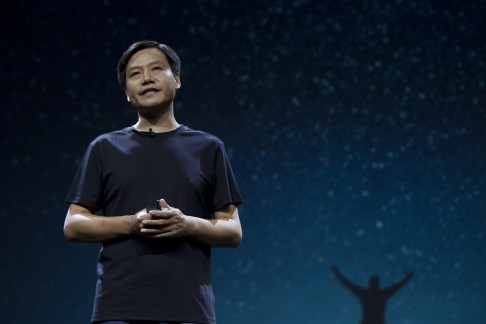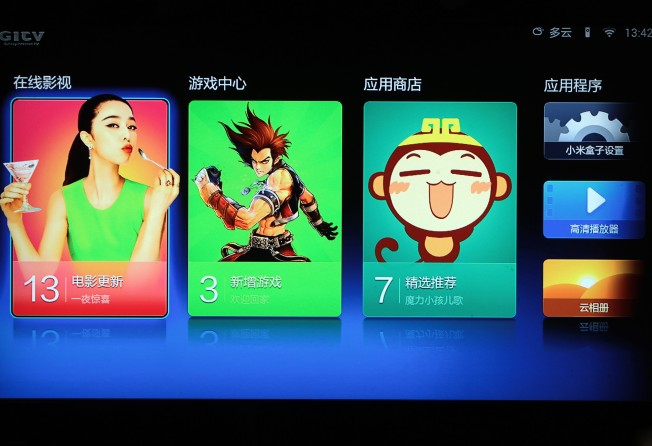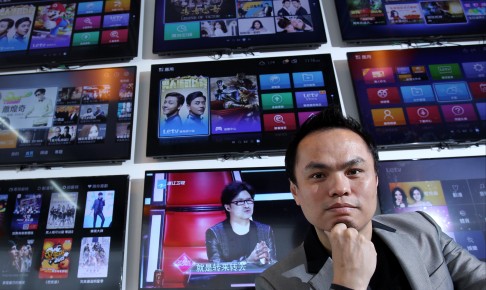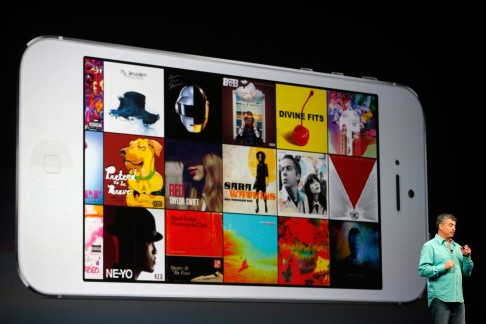
Feud between Xiaomi and LeTV may have been last straw prompting Beijing's crackdown on malpractice

The public spat between Chinese smart device and online video content rivals Xiaomi and LeTV may have prompted Beijing to issue its recent warning against industry malpractice, media reports claim.
Xiaomi is more widely known as China's top smartphone maker while LeTV is a new player in the smartphone industry. Both companies make smart TVs.
The Chinese State Administration of Press, Publication, Radio, Film and Television ordered the country’s seven leading online licensed television operators to clean up their acts on Wednesday, or risk having their licenses withdrawn.
In Communist Party parlance, they were told to subject themselves to a thorough self-review, and warned not to commit four kinds of malpractice.
This means the operators can no longer provide USB installations for their internet TVs. They are also banned from integrating internet browsers into their systems.
Also forbidden is any promotion of integrated programme software, video site clients or radio station apps, as well as any promotion of apps that allow smartphones to serve as remote controls for video viewing.
The brouhaha between Xiaomi and LeTV last month could have been the straw that broke the camel’s back, and led the Chinese government to issue the crackdown, Alex Ng, an executive at China Merchants Securities, told the Hong Kong Economic Journal.
Such public spats are not uncommon among Chinese tech companies. Some may even stoke the fires deliberately to promote themselves, pundits claim.
“These companies are very competitive, and they all want media attention,” said Doug Young, an associate professor of financial journalism at Shanghai's Fudan University.
In June, Zhou Hongyi, the CEO of internet security giant Qihoo 360 Technology, said he felt betrayed by LeTV’s move to snap up 18 per cent of smartphone maker Coolpad.
The investment came after Qihoo had ploughed US$409 million into setting up a joint venture with Coolpad to launch Qiku, a domestic smartphone brand.
But when it comes to making controversial headlines in China’s tech circles, Xiaomi is right up there.
Its top executive also got into a war of words with Qihoo on local microblogging sites when both companies released similar phones on the market in 2012.
Last year, Xiaomi was accused of stealing patents to make air conditioners by Dong Mingzhu, CEO of home appliance maker Gree Electric.
But the latest incident flared up when Xiaomi vice president Wang Chuan claimed LeTV was flouting regulations as its built-in browser allowed users to stream content externally.
This seemed to go against a Chinese regulation issued in April forbidding online TV broadcasters from screening content from sources other than official TV stations. Unlicensed foreign films and TV series were removed from video streaming platforms that same month.
Wang also leaked statistics showing that Xiaomi had five times as much content as its rival. LeTV retaliated by accusing Xiaomi of deliberately misleading the public.
It said it was cooperating with China Radio Institute to ensure its video streaming remained within the law, even though it lacked a license for its internet TV operations. Sales of its TVs were unlikely to be affected by the regulations, LeTV added.
Xiaomi fired back that LeTV was putting consumers and shareholders at risk by not informing them of its unlicensed status.
The company, often dubbed “China’s Apple” for its smartphones that critics say look like clones of the iPhone, went on to claim that its reputation had taken a hit by erroneous costs attributed to it by LeTV.
The video content provider calculated that consumers would have to fork out over 6,000 yuan (US$966) to view all the movies-on-demand on Xiaomi’s smart TV.
Xiaomi said this was untrue and that it was considering filing a defamation lawsuit.
Earlier in April, company founder Lei Jun, who like Steve Jobs can often be seen sporting black jeans and a t-shirt, mocked a claim by LeTV that it was selling a bezel-free, or borderless, smartphone.
LeTV CEO Jia Yueting later stated that he hoped Chinese companies could cooperate instead of engaging in such in-fighting, in a bid to thwart the global dominance of Apple’s iPhone.
The need to dislodge Apple is something that most Chinese smartphone makers seem able to agree on. The Chinese government has also targeted Apple recently.
In March, LeTV CEO Jia Yueting posted a cartoon image of Adolf Hitler wearing an armband with an Apple logo on it
Xiaomi also targeted Apple in its early years. It posted the word “idead” on Chinese microblogging site Weibo when Jobs passed away in 2011.
Last week, China’s state television broadcaster CCTV aired a report on how Apple’s iPhone leaks 16 megabytes a day of mobile data while on standby, whereas domestic brands like Xiaolajiao (“Small Chili” in English) only waste 0.6 megabytes.
CCTV ran a malpractice expose in 2013 accusing Apple of discriminating against China in after-sales service. The state-run People’s Daily also ran editorials attacking Apple for its “unparalleled arrogance”.

